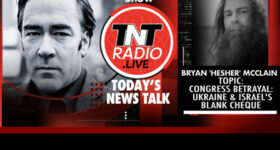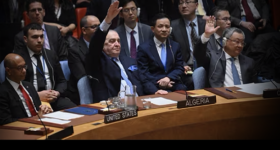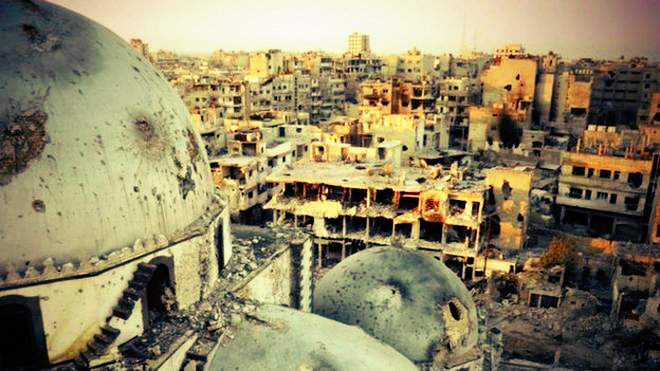
John Rosenthal
Brics Post
“The World has played with fire in Syria.”
John Rosenthal is a European-based journalist and political analyst who writes on European politics and transatlantic issues.
He has also written extensively about the Syrian Civil War.
His articles have appeared in such publications as Al-Monitor, World Affairs, The Wall Street Journal Europe, Les Temps Modernes, and Die Weltwoche. He is the author of the recent book The Jihadist Plot: The Untold Story of Al-Qaeda and the Libyan Rebellion.
The BRICS Post recently interviewed Rosenthal about developments in Syria.
TBP: The Syrian military delivered ISIL it’s greatest defeat in two years by recapturing the ancient city of Palmyra on March 27. But Robert Fisk criticized Western powers for not cheering ISIL’s demise in Palmyra.
Coming a week after ISIL’s brutal attack in Brussels, shouldn’t the EU at least have seen this as payback?
Rosenthal: Like the United States, the major European powers have put themselves in an impossible position. For five years now, they have been telling us that Bashar al-Assad and the Assad “regime”, as they say, are the root of all evil in Syria – so awful that it was even worth facilitating the rise of openly jihadist forces in Syria, in order to hasten the regime’s demise.
The most extreme variant of this “root-of-all-evil” hypothesis is the idea that the Assad regime itself was responsible for the rise of ISIL and has continued, in one form or another, to collude with it.
This idea has become commonplace on both sides of the Atlantic. If ISIL is responsible for the Brussels attacks, as it claims, then, of course, Western leaders should be celebrating ISIL’s defeat at Palmyra. But since that defeat has come at the hands of regime forces, this would be to admit they were wrong. And one thing these people will never do is admit they are wrong. Hence the embarrassed silence vis-à-vis Palmyra.
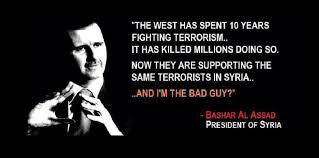
There has been much criticism in the past few years of how Western press have covered the Syrian civil war.
As a journalist who has written about the conflict, is this criticism warranted?
Absolutely. In fact, even though my writing is 99 per cent just factual, I was less and less able to write about the conflict, because the media did not want to publish the facts in question.
One of the publications to which I had been a regular contributor – National Review Online, the website of the American conservative weekly National Review – went so far as to “bar” me from publishing. In other words, they blacklisted me. At least this is what the journalist Michael Weiss claims, and I think Weiss is right. The editors at National Review did not tell me I was “barred,” but they never again accepted a submission from me and eventually ceased responding altogether.
Weiss, incidentally, is one of the main American proponents of the “Assad-as-root-of-all-evil” view of the Syrian conflict, and he clearly believes that my barring was well deserved.
The reason for my barring was an article I published in June 2012 on the Houla massacre. The massacre represented a major turning point in the Syrian conflict.
Responsibility was almost instantaneously attributed to regime forces and/or affiliated militias, and Western governments responded by cutting off diplomatic relations with Damascus.
Two weeks later, however, Germany’s paper-of-record, Die Frankfurter Allgemeine Zeitung, published a report suggesting that these initial attributions were mistaken and that the perpetrators of the massacre were in fact rebel forces.
I am a specialist in European languages and politics, and it struck me as normal, under the circumstances, to try to make the gist of this report accessible to the English-speaking public. But very quickly I heard from a contact at National Review that my sources were suspected of being “beholden to Assad”.
The notion that the leading paper of Europe’s richest and most powerful nation is somehow “beholden to Assad” is downright laughable. But it is a measure of the parochialism of some of America’s would-be “opinion-makers” that it appears to have been taken seriously by the editors at National Review.
Such insinuations – and, I suppose, the fact that I had the temerity to defend the credibility of the report against irrelevant smears – was enough to get me barred.
Another example: As you know, in April 2014 the Dutch priest Father Frans van der Lugt was killed in a rebel-controlled Christian neighborhood of Homs.
Father Frans’s death made headlines around the world and he was widely eulogized for his good works in Syria. Examining Father Frans’s publications in Dutch, however, I discovered that his own first-hand observations of the beginnings of the anti-Assad rebellion contrasted sharply with the standard view in the Western media.
Undoubtedly most significantly, Father Frans insisted that the protests that sparked the rebellion in 2011 were not strictly peaceful, as they have been almost universally presented to the Western public, but rather contained an armed and violent element from the start. He also accused rebel forces of committing atrocities and then blaming them on the regime.
By this time, needless to say, I could not even have dreamed of pitching an article on Father Frans’s observations to National Review. But I could not place one in any other Stateside outlet either, including venues with which I had an established relationship.
Despite their obvious relevance and newsworthiness – or rather: precisely because of the latter – Father Frans’s views were taboo.
If he had still been alive and his observations had become known, he would surely have been attacked as an Assad “propagandist” – as other Syria-based Christian clergy who made similar observations in fact have been.
I could give numerous other examples.
Once Washington and its European allies had established the terms of the politically “correct” narrative of the Syrian crisis, facts that failed to jibe with that narrative were unwanted and anyone who tried to report them was inevitably attacked as “pro-Assad”.
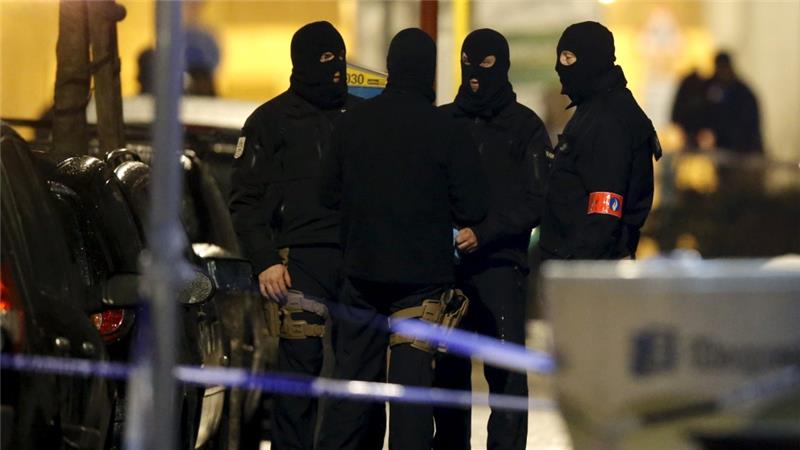
European intelligence services are now chasing ISIL veterans who returned from the Middle East to roost at home.
You’ve been writing about these networks and how ill informed European agencies have been about their sheer numbers.
Could the Brussels attack have been thwarted?
Obviously, one cannot say that Belgian authorities have been incredibly efficient about breaking up terror plots. But neither can one say that about the French.
Although it tends to escape notice, a major component of the November Paris attacks – namely, the attack on the Bataclan Theatre – was a strictly French operation. And, of course, there was the Charlie Hebdo attack and numerous other recent attacks in France – almost all of them carried out by French jihadists. But if we take a longer view, the answer is already implicit in your question, and I’m afraid your formulation is entirely apt. These guys have indeed come home to roost. With the sole exception of Salah Abdeslam, all the known perpetrators of the November Paris attacks were returnees from Syria. Four of the five suspected perpetrators of the Brussels attacks are known to have either been in Syria or attempted to get there.
By providing moral and diplomatic and, in some cases, material support to the anti-Assad jihad in Syria, and by allowing jihadist safe havens to be carved out of Syrian territory, the European powers helped to create the most important incubator of terror that the world has yet seen.
Obviously, Belgium bears less responsibility in this regard. It is not small states like Belgium that lay down the broad lines of European foreign policy. It is the major EU powers: France, Germany and, for the moment, the UK.
The problem is not one of nuts-and-bolts counter-terrorism. The problem is one of policy. By fomenting jihad in Syria, the European powers and the US have been playing with fire.
Citizens of Europe are now paying the price.
How does media coverage of Syria compare with coverage of before/after the 2003 Iraq war?
At least as concerns the US media, the situation today is incomparably worse. There was a long debate in the run-up to the war, and in the aftermath no one had any problems questioning the grounds for intervention or even indeed outright accusing the Bush administration of having lied.
This became entirely commonplace. The stifling of debate and the homogenization of the media as regards hot-button foreign policy issues really began under the Obama administration: most notably, in the context of the Libyan war. But at the time, it was at least still possible to bring up conflicting information in “new” media and indeed in some conservative media.
I published numerous articles on the Islamist roots of the Libyan rebellion and the presence in it of Al-Qaeda-linked militants precisely at National Review Online.
In the aftermath of the war – i.e. when it no longer mattered to policy – even the mainstream US media would to some extent acknowledge this presence; and then, of course, the US experienced its own sort of “chickens-coming-home-to-roost” moment in the form of the September 2012 attack on the US mission in Benghazi.
I suppose it is because the Syrian “playbook”, so to speak, so closely resembled the Libyan one that the screws had to be turned even tighter.
***
READ MORE SYRIA NEWS AT: 21st Century Wire Syria Files













